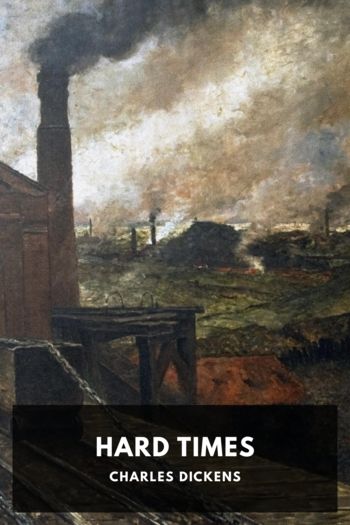Millennium Holland, Tom (read dune .TXT) 📖

Book online «Millennium Holland, Tom (read dune .TXT) 📖». Author Holland, Tom
And yet by the early years of the tenth century, the sheer scale of the ruin had come to threaten the outlanders no less than the wretched natives. Increasingly, with all the region of the Seine scavenged bare, the Northmen had been obliged to look ever further afield for pickings. In 911, leaving their coastal bases far behind them, they had plunged deep into enemy territory, as far as Chartres, some sixty miles south-west of Paris. Here, confronted by a Frankish army led by Hugh Capet’s grandfather, they had been brought to defeat – but not to destruction. The aftermath had left both sides in a mood for compromise. Even as the defeated war bands were retreating to lick their wounds on the banks of the Seine, messengers from the Frankish king had been following in their wake. Brought into the presence of the most fearsome and formidable of all the Northmen, a celebrated warlord by the name of Rollo, the ambassadors had proposed a bargain. The pirate chieftain was to abandon his heathen ways; he was to become the vassal of the Frankish king; he was to stand sentry against other pirates on the upper reaches of the Seine. In exchange, he was to be acknowledged as the rightful overlord of Rouen and all the lands around it: the peer, in short, of any native-born count. Rollo, no less shrewd than he was brutal, had immediately grasped what was being offered. Rouen was certainly worth a mass. The terms had been accepted. In 912, the new lord of the city, bowing his head, had duly received baptism at the hands of its no doubt highly relieved archbishop.
Few, on either side, had expected the bargain to stick for long. Enthusiasts for the new regime would later make much play of Rollo’s born-again piety – but more disturbing rumours had never ceased to swirl around his name. Once, at least, he had returned to his old ways, leading raids across his borders with an authentically piratical abandon; while on his deathbed, it was darkly whispered, he had cast all inhibitions aside, ‘and ordered a hundred Christian captives beheaded before him in honour of his native gods’. Calumny or not, neighbouring lords had long persisted in regarding the upstart county as a nest of heathenish vipers. In 942, when Rollo’s son, William Longsword, had travelled to a parley with the Count of Flanders, he had done so unarmed, as befitted a Christian lord meeting with a fellow prince; and the Count of Flanders, as befitted a Christian lord meeting with a dangerous pirate, had ordered him hacked to death. Twenty years on, and Richard, the murdered Longsword’s son, had found himself so menaced by a coalition of his Frankish neighbours that he had been reduced, in his desperation, to calling in assistance from across the seas. His appeal had been answered with a ferocious enthusiasm; squadrons of dragon-headed ships had come gliding into the Seine; ‘foaming streams had blushed with blood, warm gore had smoked above the grass’; and the Franks had been repulsed. Yet the Count of Rouen himself, even with his frontiers stabilised, had remained on his guard. The Frankish world beyond him had still appeared hostile and menacing, one vast and yawning mouth, waiting to swallow him and all his princedom; and so Richard, in his concern to preserve the distinctive character of his lands, had continued to encourage immigration from across the realms of the North.
The result, over the succeeding decades, had been such an influx of settlers that by 996, when Richard, after a long and triumphant reign, finally died, the mongrel character of his subjects could be hailed as their defining glory. For Rollo, it would be claimed, long before ever landing on the banks of the Seine, had been granted a dream of a mighty flock of birds, ‘each one of a different breed and colour’, but all of them distinguished by having a left wing the colour of blood: the mark of warriors, of peerless warlords, brought together to share in a common purpose, and a common destiny. ‘One nation fashioned out of a mixture of different ones’: such was the boast of those who had already come to see themselves as a unique and glorious people—the Normans.
Perhaps it was not surprising, then, that their neighbours, almost a century after Rollo’s baptism, should have persisted in regarding the county ruled by his grandson as somehow sinister and alien: a lair of pirates still. Despite the fact that only Flanders among the great princedoms of the kingdom could boast a more venerable pedigree, the Norman state had never entirely lost its aura of the alien. In Rouen, for instance, the harbour remained as thronged with shipping from across the northern seas as it had ever been; flush with ‘profits from the trade borne on the surging tides’, the port was precisely the kind of stronghold that had always been most treasured by the Northmen. Even away from the Seine, the county remained a place where sea-wanderers might feel at home: in the west of Normandy especially, there were many who still spoke their language; while at Richard’s court, a praise-singer from Scandinavia would always be assured of a welcome. Violence, and slaughter, and gloating, and bragging: these were the invariable themes of a poem composed by a Northman.
Elsewhere too, escaped from the limits of song, hints of a primordial heathenism were rumoured to linger. The winter gales which screamed across the woods and fields of Normandy were notorious for being ridden by demonic huntsmen; and leading the hunt, men whispered, was none other than the ancient king of the gods





Comments (0)